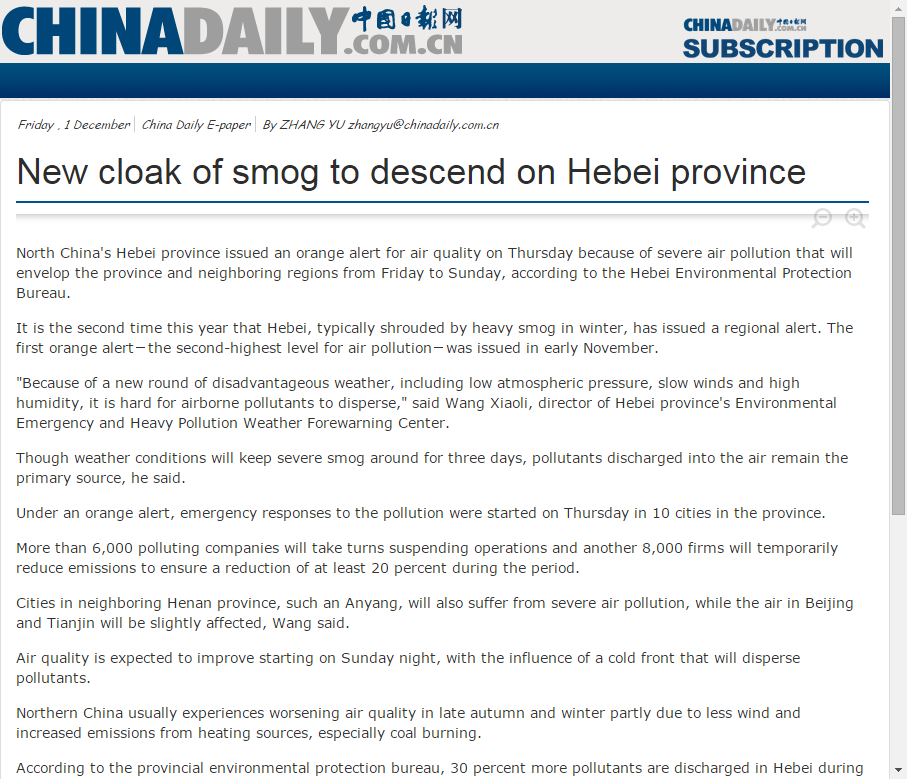中国日报网:New cloak of smog to descend on Hebei province
发布日期:2017-12-01 18:54 信息来源:省生态环境宣传教育中心 访问量:? 字体 :[ 大 ][ 中 ][ 小 ]
North China's Hebei province issued an orange alert for air quality on Thursday because of severe air pollution that will envelop the province and neighboring regions from Friday to Sunday, according to the Hebei Environmental Protection Bureau.
It is the second time this year that Hebei, typically shrouded by heavy smog in winter, has issued a regional alert. The first orange alert-the second-highest level for air pollution-was issued in early November.
"Because of a new round of disadvantageous weather, including low atmospheric pressure, slow winds and high humidity, it is hard for airborne pollutants to disperse," said Wang Xiaoli, director of Hebei province's Environmental Emergency and Heavy Pollution Weather Forewarning Center.
Though weather conditions will keep severe smog around for three days, pollutants discharged into the air remain the primary source, he said.
Under an orange alert, emergency responses to the pollution were started on Thursday in 10 cities in the province.
More than 6,000 polluting companies will take turns suspending operations and another 8,000 firms will temporarily reduce emissions to ensure a reduction of at least 20 percent during the period.
Cities in neighboring Henan province, such an Anyang, will also suffer from severe air pollution, while the air in Beijing and Tianjin will be slightly affected, Wang said.
Air quality is expected to improve starting on Sunday night, with the influence of a cold front that will disperse pollutants.
Northern China usually experiences worsening air quality in late autumn and winter partly due to less wind and increased emissions from heating sources, especially coal burning.
According to the provincial environmental protection bureau, 30 percent more pollutants are discharged in Hebei during the heating season.
To cope with that, Hebei is replacing coal for family heating with electricity or gas, shutting down illegal polluting companies and limiting production in heavy industries such as iron, steel and coking.
The province is also increasing its investment in technology for environmental monitoring to better forecast smog and control pollutants.
"We are considering introducing high-tech instruments that use a LIDAR-or light detection and ranging system-to precisely monitor particulate matter in the air," said Huang Yunlong, who works at the bureau's development service center.
According to Huang, the instruments are carried in a vehicle and can monitor a certain area's pollutants in three-dimensional space, unlike traditional stationary monitors.
The province's average density of PM 2.5-particulate matter with a diameter less than 2.5 microns-fell by 25.3 percent year-on-year in the last two months to 62 micrograms per cubic meter, according to the monitoring center.
扫一扫在手机打开当前页

 冀公网安备13010402001751号
冀公网安备13010402001751号
